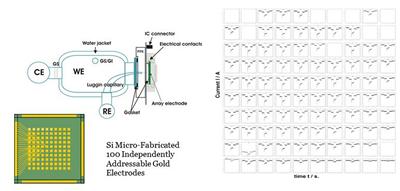Research project: Hayden: High Throughput Synthesis and Screening of Electrocatalysts
The search for metal alloy electrocatalysts which exhibit an enhancement in activity over the pure components has been the focus of considerable effort with respect to a number of important reactions.
